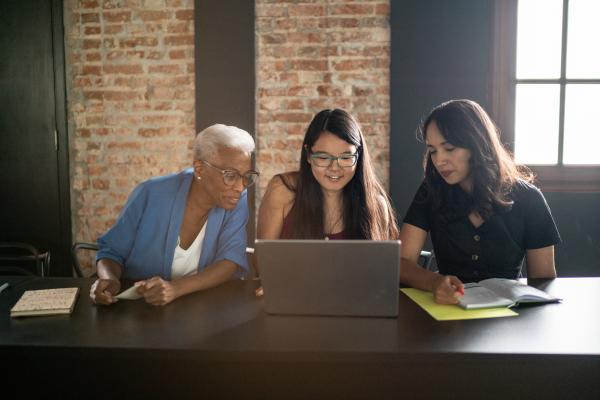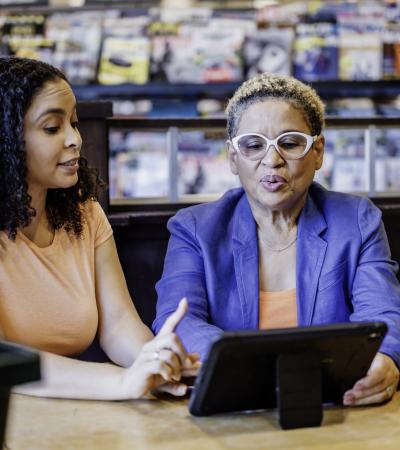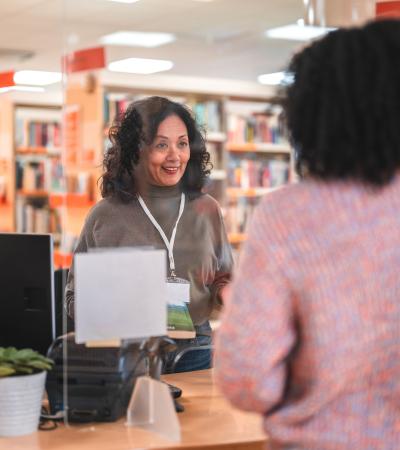In today's rapidly evolving digital landscape, digital skills competence has become imperative for people of all ages. Effectively using digital tools is crucial for education/learning, working, financial management, e-government services, shopping, health/wellness, transportation, entertainment and creativity.
Younger “digital natives” are often assumed to be technologically proficient, while older users are not. However, statistics show that approximately 48 million Americans lack the digital skills necessary to succeed in the current workplace environment. Libraries can support digital literacy across age groups, and here we share some of our favorite resources for doing so.
Defining terms

The terms digital literacy and digital skills have become almost interchangeable. Building upon a widely accepted definition of digital literacy defined by ALA, digital skills are defined by UNESCO as a range of abilities to use digital devices, communication applications, and networks to access and manage information. These skills enable people to create and share digital content, communicate and collaborate, and solve problems for effective and creative self-fulfillment in life, learning, work and social activities at large.
However, there is a major digital skills divide, defined by the National Skills Coalition as "the space between those who have the robust access and support needed to engage in skill-building opportunities and those who do not.”
Having grown up in a technology-driven world, younger learners may naturally be familiar with certain types of digital tools. Many of these "digital natives" are adept at using social media or playing video games. However, a large number of young adults lack the basic digital skills to evaluate the credibility of online information, protect their digital privacy, or transfer their knowledge to use digital workplace tools.
Older learners may face different challenges in acquiring digital literacy skills, and socioeconomic barriers often limit their access to technology and formal digital literacy instruction. For some, the accelerated pace of technological change is frustrating or overwhelming. For others living on fixed incomes, the cost of devices and access are too high. Yet more older users are seeing the benefits of using digital technology for multiple reasons, ranging from health and wellness to social engagement.
Tailor services to the digital needs of different age groups
Supporting digital literacy for all users requires a multifaceted approach that considers diverse needs, backgrounds and skill levels. Librarians play a vital role in this effort by offering outreach services and resources tailored to address the digital needs of different user groups.
One approach is through formal education systems, where digital literacy is integrated into the curriculum across all age groups. Incorporating digital literacy in early education ensures that younger learners develop a solid foundation in essential digital skills, including digital citizenship. For older learners, adult education programs and community workshops conducted in libraries and other public venues provide opportunities to enhance digital literacy.
Beyond formal education and online resources, community-based initiatives are crucial for improving digital literacy skills across generations. Libraries, community centers, and senior centers can serve as hubs for digital literacy programs and workshops tailored to the needs of different age groups. These initiatives provide hands-on training and foster a sense of community and support among learners.
Moreover, intergenerational learning programs offer a unique opportunity to bridge the digital divide by bringing together older and younger individuals to exchange knowledge and skills. For example, younger people can teach older ones how to use digital devices or navigate social media. Older adults can share knowledge and experience from the world of work that can help younger adults improve their performance or develop their professionalism. All sharing activities can ease learning and increase mutual understanding across generations.
Resources
These resources offer a variety of tools and materials to support people of all ages in improving their digital literacy skills, whether it's through assessments, tutorials, or broader educational content.
For Adults
- NorthStar Digital Literacy: Provides online assessments and tutorials to help adults improve their digital literacy skills
- GCF Learn Free: Offers free online learning resources on various topics including technology, digital literacy and more
- ISTE (International Society for Technology in Education): Provides practical guidance, evidence-based professional learning, virtual networks, and events to promote digital literacy among educators and adults
- Digital Promise: Advances equitable education systems by bringing together solutions across research, practice and technology
- DigitalLearn Training: Offers a range of computer and technology training resources for adults
For Children and Families
- Learning Resource Center (Barbara Bush Foundation): Provides learning resources for children and families including digital literacy resources
- GCF Learn Free: Offers free internet safety for kids tutorials and more
This article was written by members of ALA's Public and Cultural Programs Advisory Committee.



